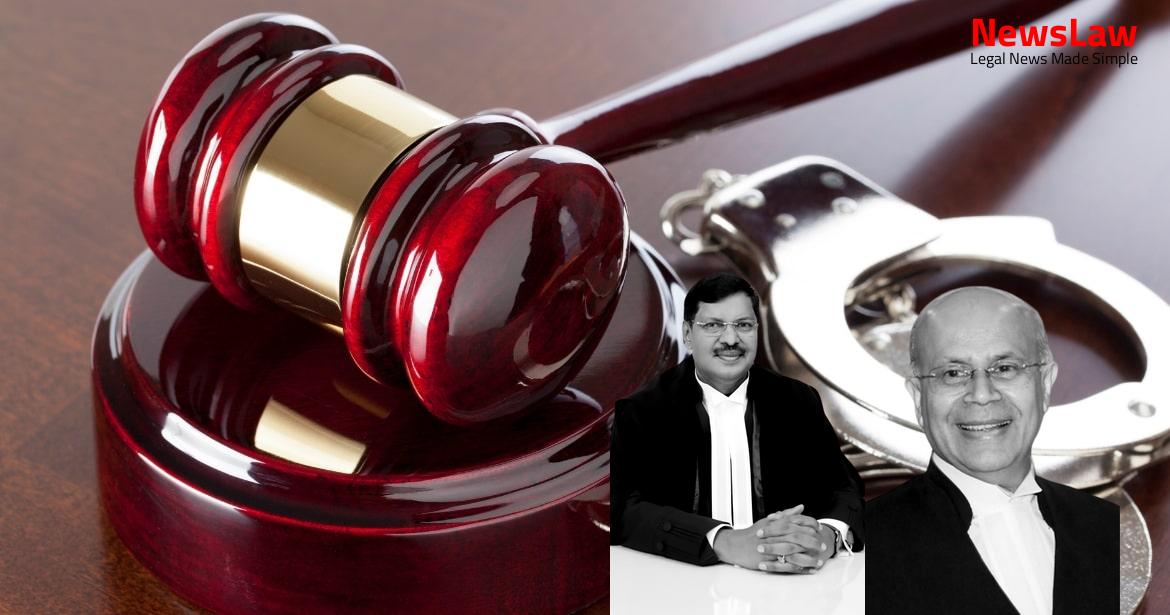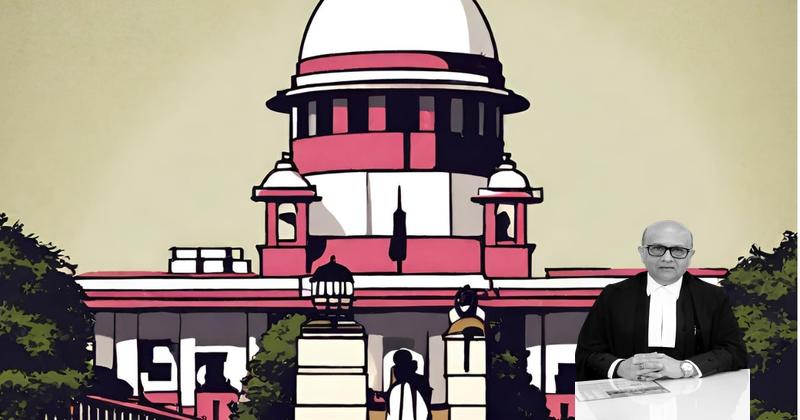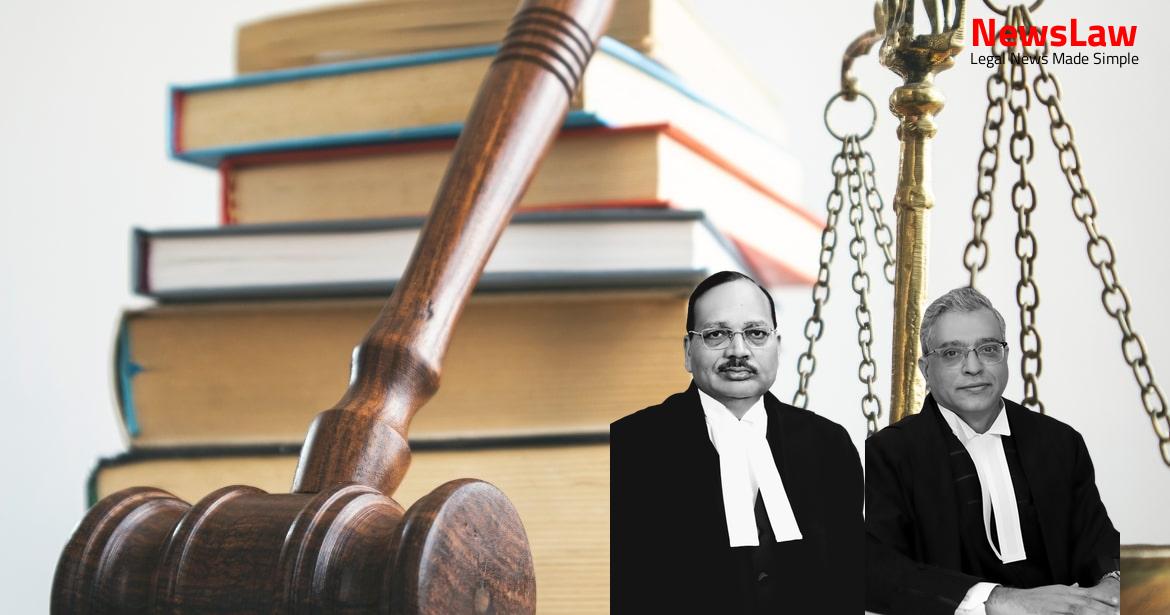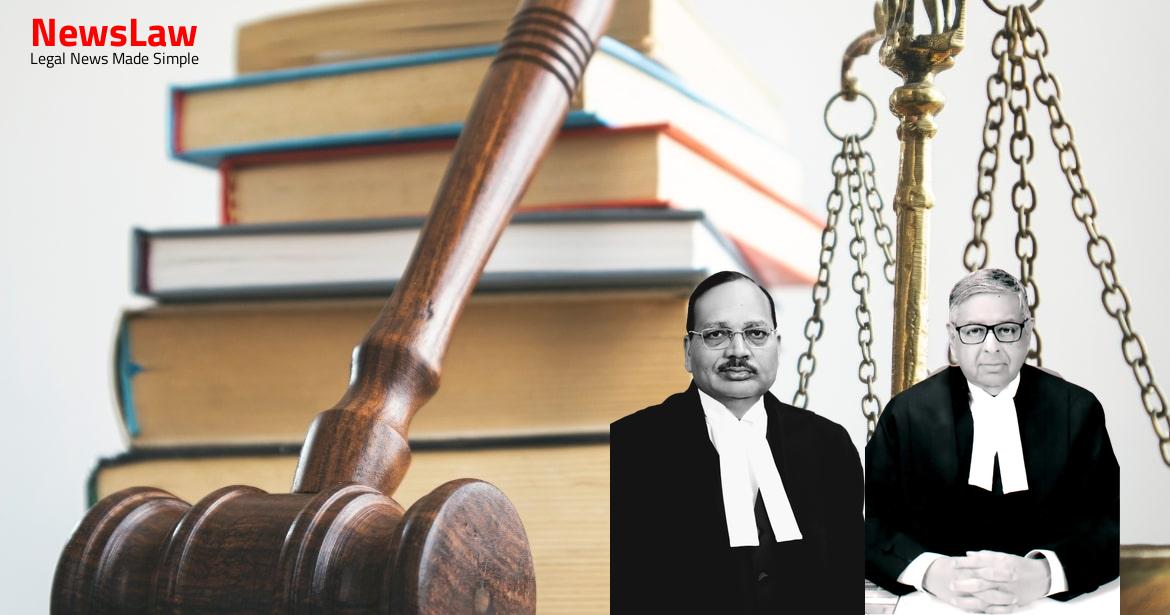Delve into the recent Supreme Court judgment on the Land Sale Deed Case, focusing on the determination of undue influence in the execution of the deed. Explore the legal complexities surrounding this case as the court examines the influence exerted over the deceased party during the transaction. Stay informed on the significant implications of this ruling.
Facts
- The appellate court allowed the appeal on the grounds that the defendants did not prove they were in a position to dominate the will of the deceased through undue influence.
- The High Court overturned the decision of the First Appellate Court, which had favored the appellant, and reinstated the dismissal of the appellant’s suit.
- DW-1 witnessed the sale deed and was present at the time of registration.
- Deceased was old, infirm, bedridden and sick for approximately the last 8 to 10 years.
- Deceased was entirely dependent on the original defendants, making them able to exercise undue influence.
- Defendant no.1 had no source of income to pay the purchase price.
- Deceased expired within ten months of the execution of the sale deed.
- Full consideration for the sale had not been established.
- Deceased admitted to receiving Rs.2,000/- earlier and Rs.4,000/- at the time of registration.
- Deceased executed another sale deed two years earlier in 1968 which has not been questioned.
- There can be no presumptions merely on account of old age.
- A registered instrument carries a presumption of correctness unless rebutted.
- Plaintiffs alleged fraud, deceit, and undue influence due to the deceased’s old age and infirmity.
- The burden was wrongly shifted to the respondents by the First Appellate Court.
- The deceased was alive for approximately ten months after the execution of the deed but never questioned it.
- Sub-Registrar did not record adverse inferences about the deceased’s condition or capacity at the time of registration.
- The deceased had not sold any land to third persons in the year 1968 as contended by the defendants.
- The wife of the deceased was not examined as a witness.
Also Read: Land Dispute Resolution: Supreme Court Ruling on Specific Performance
Issue
- The primary issue for consideration is the physical condition of the deceased and his capacity to execute the sale deed.
- Section 14 of the Indian Contract Act, 1872 defines ‘free consent’ as consent that is not caused by undue influence.
- Whether the original defendants exerted undue influence over the deceased due to his physical infirmity and old age in having the sale deed executed in favor of defendant no.1 needs to be determined.
- Section 16 of the Indian Contract Act defines ‘undue influence’ which will be crucial in analyzing the circumstances surrounding the sale deed execution.
Arguments
- Learned counsel for the respondent argued that according to Section 101 of the Evidence Act, 1872, the initial burden of proof for undue influence lies on the plaintiffs.
- The burden only shifts to the respondent after the plaintiffs have established a prima facie case for undue influence.
- It was pointed out that the necessary pleadings regarding undue influence were lacking in the case.
Also Read: Judicial Standards and Compulsory Retirement Case: Supreme Court of India Judgment
Analysis
- Undue influence is defined as a situation where one party dominates the will of the other to gain an unfair advantage.
- This can happen when one party has authority over the other or is in a fiduciary relation.
- It can also occur if one party contracts with another whose mental capacity is affected by age, illness, or distress.
- If a contract appears unconscionable and is made between parties where one dominates the will of the other, the burden of proving it was not induced by undue influence lies on the dominating party.
- The deceased was not completely physically and mentally incapacitated.
- No credible evidence that he was bedridden or mentally impaired.
- Hardness of hearing by old age cannot be equated with deafness.
- The plaintiff failed to provide evidence or details of undue influence exercised by the original defendants over the deceased.
- No evidence of the wife of the deceased being dominated by the original defendants.
- The sale deed executed by the deceased earlier has not been assailed.
- No evidence of the deceased being completely dominated or mentally impaired.
- Full particulars of fraud, undue influence, and coercion must be set forth.
- Presumption in favor of the defendants due to the registered nature of the sale deed.
- No evidence of rapid deterioration in the deceased’s condition in the span of two years.
- The plaintiff did not provide evidence to rebut the sub-registrar’s testimony.
- Undue influence must be properly pleaded and supported by evidence.
- No presumption of imposition merely because the donor was old and weak.
- Distinguishing between influence and undue influence: no presumption of undue influence solely based on close relation.
- Cases cannot be decided on assumptions or presumptions.
- Special circumstances must exist for the grant of special leave under Article 136 of the Constitution.
- Concurrent findings of two courts upheld, no reason to interfere.
- The onus shifts to original defendants only after the plaintiff establishes a prima facie case.
- Pleading the precise nature of influence, manner of use, and unfair advantage obtained is essential.
- No application of law without considering the facts of the case.
- Witnesses proved the executant was paralytic and bedridden.
- Undue influence not established solely based on parties’ natural reliance and dominance in giving advice; influence alone proven.
Case Title: RAJA RAM Vs. JAI PRAKASH SINGH
Case Number: C.A. No.-002896-002896 / 2009



